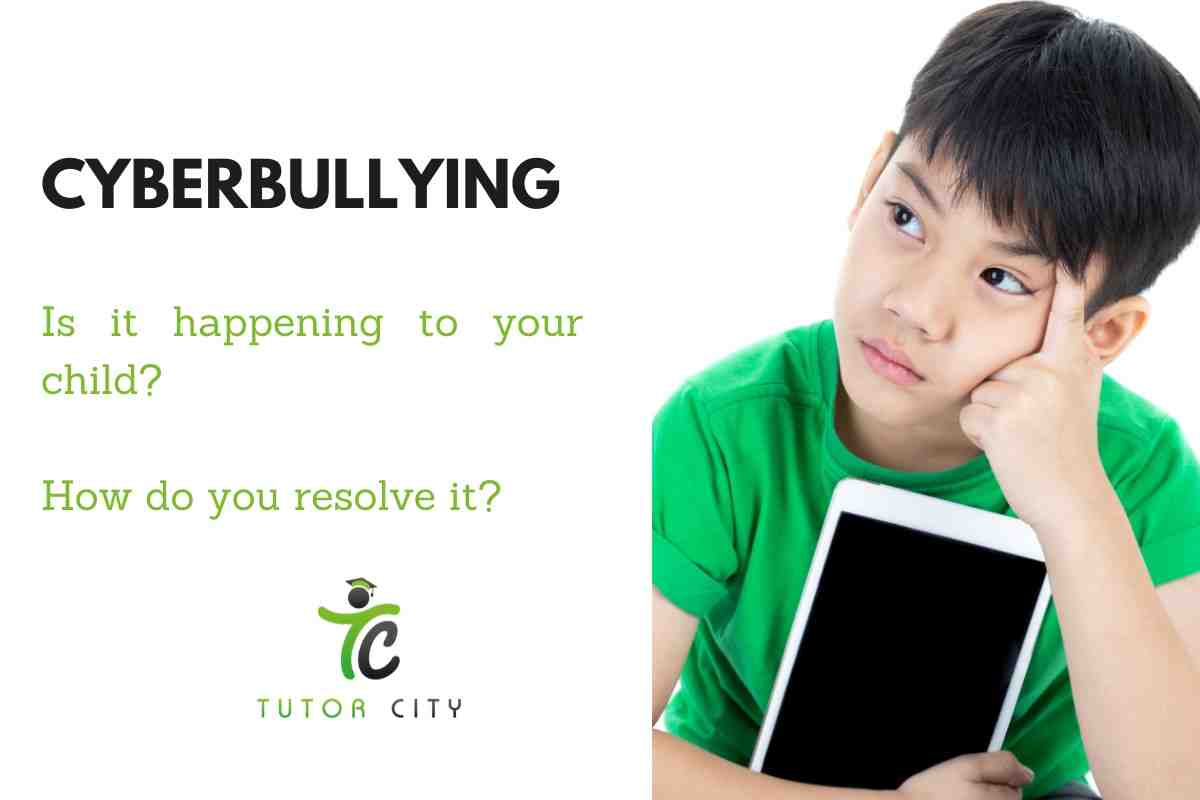
- Published by: Tutor City
- July 19, 2020
- Parenting
Cyberbullying: Is it happening to your child? How do you resolve it?
Modern technology and the internet have given us the opportunity to do wonderful things.
However there are 2 sides to the coin.
On the one hand, the internet has been a great tool.
On the other hand it has been the reason for significant emotional torment for many parents and their children. Some children and adolescents engage in hateful behaviour on social media.
This is called cyberbullying, and in the 21st century every parent has to be vigilant to make sure that their child isn't falling victim to this relatively new phenomenon that may have disastrous consequences.
Talking point's news report says that 3 in 4 youngsters say they have been bullied online. There is also an online guide with the latest statistics on cyberbullying which delves into the trends and solutions on how to deal with this phenomena.
So, how can you protect your children from becoming a cyberbullying victim?
Here are some tips on how to spot cyberbullying and resolve this issue so that it isn't threatening your child's psychological well-being.
1. What are the warning signs that your child is being bullied online?
Some parents may not even know that their child is being bullied online until it becomes serious.
There are however some warning signs and they are characteristic of most victims of cyberbullying.
Generally, a child that is being bullied online will become withdrawn and anti-social.
In addition, you may notice that they are avoiding using their phone or going online.
If someone unexpectedly comes into the room they may quickly turn off the web pages they were looking at.
In extreme cases the child may refuse to go to school or have trouble sleeping at night. Some have resulted in self-harm among children and teenagers in Singapore, according to a Straits Times article.
If your child behaves in this manner they may be a victim of cyberbullying.
Needless to say you should not ignore the problem because it may lead to a disaster.
2. How can parents prevent cyberbullying and protect their children?
First of all you should monitor how your children use the computer and the smartphone.
Ask them to use it in the common area of your home and not in their private bedrooms.
This way you are more likely to spot if your child is being bullied online.
Try to familiarize yourself with the way various social networking apps work.
If your children have profile pages on various social networks such as: Facebook, Instagram, Twitter or Snapchat, ask them to show you their profiles. If they refuse this would be yet another red flag.
3. Talk to your children about the dangers of social media.
Show your children that you understand how social media sites work and explain to them that they may come to you for help if at any point they come across anything that is inappropriate, dangerous or upsetting.
Show them that they do not have to deal with this problem on their own; you have got their back no matter what.
4. Ignore the haters.
Tell your children not to respond to any upsetting comments aimed at them online.
Explain to them that this will only encourage bullies to write more hurtful remarks.
Reassure your children, and tell them that the hurtful comments have nothing to do with them personally, they are simply a reflection of the bully's malignant character.
5. Don’t punish them for bully’s actions.
If your children come to you and trust you enough to tell you about their problem, don't threaten to take away their phone or computer.
This may make them feel that you are blaming them for the cyberbullying incident, which will make them feel even more isolated and persecuted.
In addition, this approach will ensure that your children don't come to you with their problems in the future.
6. Try to identify the bully.
If the identity of your child's bully can be traced back to school try to involve the staff in the resolution of your problem.
Inform your school’s guidance counsellors about the cyberbullying incidents so they can keep an eye on your child during the school day.
If it escalates and your child receives the threats of physical violence then don't be shy to get the law enforcement involved.
You should save the screenshots of all the negative messages your child has received as an evidence of cyberbullying.
Cyberbullying is a serious global issue that is plaguing our society in the age of technology.
And in order to defeat it parents, children and school teachers have to unite forces.
If you are lucky and your child is not the one being bullied it is still a good idea to have a conversation with them on this topic.
Tell them that they shouldn't be an accomplice of a bully; they shouldn't forward any of the negative messages to other kids.
As for the role the schools play in this matter, ask them to implement a strict policy against cyberbullying.
It would also be a good idea if the school your child is attending organised classes to spread awareness about safety on the internet.
Cyberbullying is a serious issue
It should not be ignored otherwise it may lead to extremely negative consequences.
There are many ways in which you can prevent and minimize the damage of cyberbullying, so make sure to educate yourself on this topic in order to protect your children from this modern-day threat.
More educational articles:
Safety Tips on Cyber Bullying
Cyber bullying is a growing danger in Singapore and you should be concerned about it
Cyber bullying in Singapore: Guide to new online laws
Resources for getting help on cyberbullying






